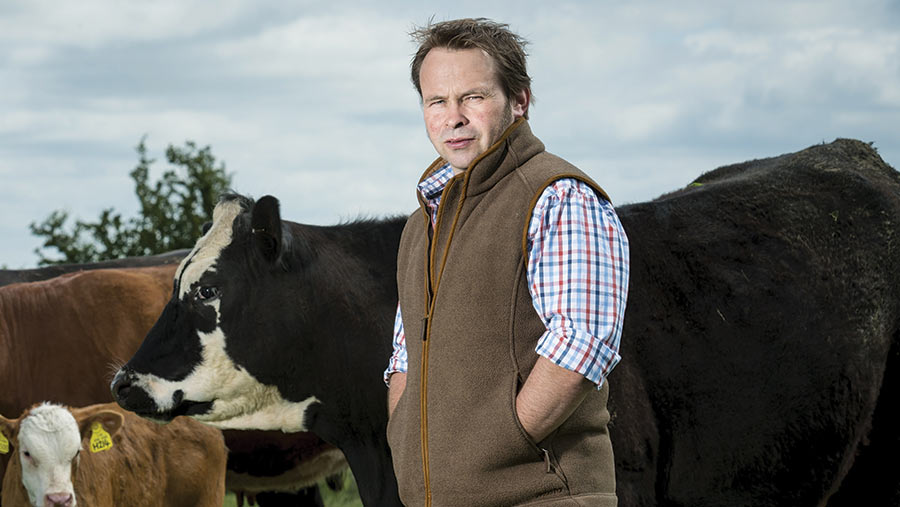Farmer Focus: Diversification among new year’s resolutions
 ©Jim Varney
©Jim Varney It’s 2016 and may I take this opportunity in wishing you all a very healthy and prosperous year ahead.
Am I the only one who wonders where 2015 went, as it seemed to whizz by in a flash?
I have a number of grand plans for the year ahead, my first being to make much better use of all our stock being EID tagged and use the data collected.
We need to record more, analyse frequently and use the results to improve farm efficiencies and assist in decision making.
See also: Call for more transparency in sheep market
We have invested time and money in these systems, so we now need to push on.
On our farm BPS and environmental payments make up 34% of our output. This is typical of upland farms and rises the further you head up the hill.
There are always things we can tinker with, and we all strive to be as efficient as possible within the constraints of the climate, soils and feed we have at our disposal.
I have sleepless nights thinking about how significant these payments are to my business and though I hear of some who say they could farm without these payments, I am yet to hear of them being returned or given to charity.
See also: Read more from the livestock farmer focus writers
We use these payments to progress our farm through genetic improvement, high health, increased biodiversity, and improved feed, all in order to produce food to put on families’ plates.
These payments allow consumers to enjoy some of the cheapest food in the world, produced to the highest standards. The level of payments is likely to reduce over the coming years and despite all the efficiencies I cannot make up a third of my output from cattle and sheep alone.
So my second resolution is to look into diversification on our farm to help redress the balance, spread risk and make these payments a smaller part of my output.
Any thoughts are really very welcome. Please contact me at simon@bainbridgefarms.co.uk
Simon Bainbridge runs a 650ha organic farm in Northumberland alongside his wife Claire and his parents. With 150 suckler cows and 1,500 breeding ewes, healthy maternal livestock and quality feed are priorities
